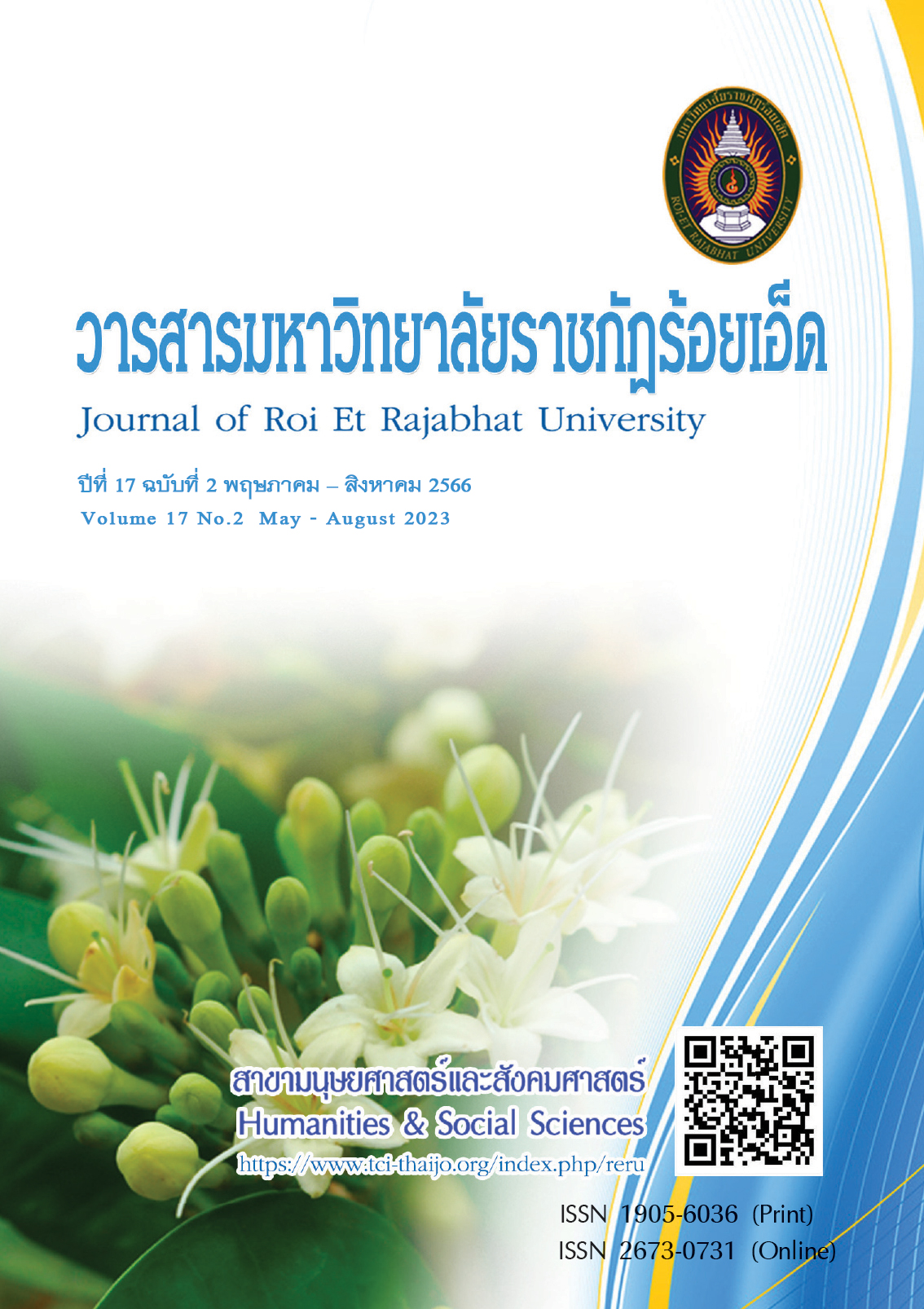The Application of the Theory of Motivation Modern Human Resource Management to Work in the Organization
Keywords:
Motivation, Human resource, OrganizationAbstract
With the advent of the digital age, there has been a notable shift in the organizational paradigm, leading individuals to adopt diverse approaches towards employment.The human resource department assumes a crucial role in effectively managing employee motivation inside a firm, ultimately contributing to
the attainment of a competitive advantage. Therefore, the purpose of writing this academic paper is to study the application of motivation theory in modern human resource management of working in an organization. This research examines employee deviations in order to develop a strategy for establishing motivational requirements inside an organization. The objective is to get insight into the desires of employees and effectively address their needs, drawing upon Abraham Maslow's framework for understanding human physiological needs. The event will encompass case studies showcasing cutting-edge research conducted in 2021. These case studies will serve as examples of learning methodologies that effectively serve to
the requirements of contemporary human resources. Notably, the event will delve into Frederick Herzberg's two-factor theory, which holds significant relevance in the realm of work motivation. Additionally, McGregor's X and Y theory will be explored to foster comprehension of distinct personality types for comprehensive content management. This article has the potential to contribute to the improvement of higher education teaching and human resource practices inside organizations. It aims to enhance comprehension of the content and the author's perspective on establishing a human resource management system that fosters knowledge and facilitates the development of employees' work potential.
References
กฤษดา เชียรวัฒนสุข และปริญญ์ ศุกรีเขตร. (2564). ความสัมพันธ์ของการรับรู้ความสามารถของตนเองและแรงจูงใจในการทำงาน
กับประสิทธิภาพการปฏิบัติงานของพนักงานธนาคารแห่งหนึ่งในเขตกรุงเทพมหานคร. วารสารรัชภาคย์, 15(40),
-110.
ณัฏฐ์พัชร์ ลาภบำรุงวงศ์. (2562). การประยุกต์ทฤษฎีแรงจูงใจในการปฏิบัติงาน. วารสารวไลยอลงกรณ์ปริทัศน์, 9(2), 61-171.
น้ำมนต์ จันทรนิยม. (2553). ปัจจัยที่มีผลกระทบต่อระดับความเบื่อหน่ายจากงาน ของพนักงานในแผนกเอ็กซ์ มิน-สเตอร์
บริษัทอุตสาหกรรมพรมไทยจำกัด (มหาชน). วิทยานิพนธ์ บริหารธุรกิจมหาบัณฑิต สาขาวิชาการจัดการวิศวกรรมธุรกิจ.
ปทุมธานี: มหาวิทยาลัยเทคโนโลยีราชมงคลธัญบุรี.
วัลลี พุทโสม และจิระภา จันทร์บัว. (2564). อิทธิพลของบทบาทการทำงาน กระบวนการทำงานและแรงจูงใจในการทำงาน
ที่ส่งผลต่อประสิทธิภาพการทำงานเป็นทีมของนักศึกษาในสถาบันการศึกษาสามแห่ง. วารสารวิชาการสมาคม
สถาบันอุดมศึกษาเอกชนแห่งประเทศไทย, 27(1), 94-112.
สุพิศ รุ่งเรืองศรี และอุดมรัตน์ สงวนศิริธรรม. (2558). ความสุภาพและมารยาทสังคมของนักศึกษานำพาสู่ความสำเร็จในการทำงาน. Nursing Journal, 42(Supplement November), 149-155.
อาจารีย์ ประจวบเหมาะ, รุ่งอรุณ กระแสสินธุ์, ชลธิชา ทิพย์ประทุม และโอปอ กลับสกุล. (2564). ความพึงพอใจและแรงจูงใจ
ของข้าราชการและพนักงานจ้างในการบริหารงานของผู้บริหารท้องถิ่นองค์การบริหารส่วนตำบลหนองปรือ
อำเภอบางพลี จังหวัดสมุทรปราการ. วารสารวิชาการ สมาคมสถาบันอุดมศึกษาเอกชนแห่งประเทศไทย, 27(1), 33-47.
Altymurat, A., Muhai, M. and Saparow, T. (2021). Human Behavior in Organizations Related to Abraham
Maslow's Hierarchy of Needs Theory. Interdisciplinary Journal Papier Human Review, 2(1), 12-16.
Amin, F. A. B. M. (2021). A Review Of The Job Satisfaction Theory For Special Education Perspective. Turkish
Journal of Computer and Mathematics Education (TURCOMAT), 12(11), 5224-5228.
Cui, L., Wang, Y., Chen, W., Wen, W and Han, M. S. (2021). Predicting determinants of consumers' purchase
motivation for electric vehicles: An application of Maslow's hierarchy of needs model.
Energy Policy, 151(1), 112-167.
Cross, D. and Swart, J. (2022). The (ir) relevance of human resource management in independent work:
Challenging assumptions. Human Resource Management Journal, 32(1), 232-246.
Frey, B.S. and Osterloh, M. (Eds.). (2001). Successful management by motivation: Balancing intrinsic
and extrinsic incentives. New York: Springer Science & Business Media.
Hekman, K. M. (2002). Physician compensation: models for aligning financial goals and incentives. Medical Group Management Assn.p 84-89
Kang, E. and Lee, H. (2021). Employee Compensation Strategy as Sustainable Competitive Advantage for
HR Education Practitioners. Sustainability, 13(3), 1049.
Latham, G.P. and Budworth, M.-H. (2007). The Study of Work Motivation in the 20th Century. In L.L. Koppes
(Ed.), Historical perspectives in industrial and organizational psychology (pp. 353–381). Lawrence Erlbaum Associates Publishers.
Maslow, A. H., Stephens, D. C. and Heil, G. (1998). Maslow on management. New York: John Wiley.
Maslow, A. H. (1943). A theory of human motivation. Psychological Review, 50(4), 370-96.
McGregor, D. and Gershenfeld, C. J. (1960). The human side of enterprise (21). New York: McGraw-Hill.
Michael, W. (2004). The Project Management Question and Answer Book. New York: Amacom.
Noimor, S. and Chaianandech, N. (2021). View of marketing in the digital age Branding, entrepreneurial
innovation. Journal of Administration and Social Science Review, 4(3), 103-116.
Okafor, A. and Abraham, N. M. (2021). Maslow’s Hierarchy of Needs Theory: Relationship Between the Higher Needs and Teachers’ Service Delivery in Public Secondary Schools in Rivers State, Nigeria. International. Journal of Innovative Education Research, 9(2), 172-179.
Pakdeewut, J. (2021). The Leadership Traits Affecting Motivation to be an Entrepreneur of the 3rd and 4th
Year Students in The Faculty of Business Administration and Accountancy, Roi Et Rajabhat University.
Journal of Roi Et Rajabhat University, 15(2), 181-192.
Saiyadain, M. Z. (2000). Human Resource Management. New Delhi: Tata Mc Graw-Hill Publishing.
Taylor, F. W. (2004). Scientific management. New York: Harper & Brothers Publishing.
Thant, Z. M. and Chang, Y. (2021). Determinants of Public Employee Job Satisfaction in Myanmar: Focus on Herzberg’s Two Factor Theory. Public Organization Review, 21(1), 157-175.
Downloads
Published
How to Cite
Issue
Section
License
Copyright (c) 2023 Roi Et Rajabhat University

This work is licensed under a Creative Commons Attribution-NonCommercial-NoDerivatives 4.0 International License.
บทความที่ได้รับการตีพิมพ์เป็นลิขสิทธิ์ของวารสารมหาวิทยาลัยราชภัฎร้อยเอ็ด
ข้อความที่ปรากฏในบทความแต่ละเรื่องในวารสารวิชาการเล่มนี้เป็นความคิดเห็นส่วนตัวของผู้เขียนแต่ละท่านไม่เกี่ยวข้องกับมหาวิทยาลัยราชภัฎร้อยเอ็ด และคณาจารย์ท่านอื่นๆในมหาวิทยาลัยฯ แต่อย่างใด ความรับผิดชอบองค์ประกอบทั้งหมดของบทความแต่ละเรื่องเป็นของผู้เขียนแต่ละท่าน หากมีความผิดพลาดใดๆ ผู้เขียนแต่ละท่านจะรับผิดชอบบทความของตนเองแต่ผู้เดียว





